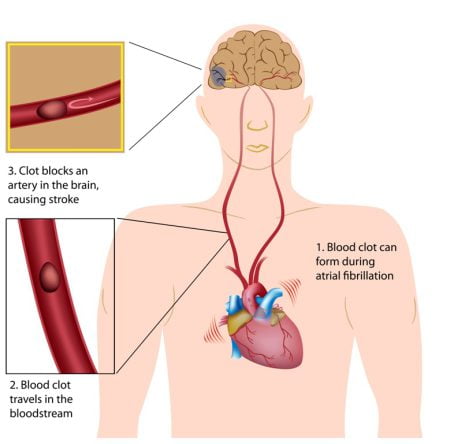Alcohol addiction isn’t just about drinking too much; it’s a chronic disease that rewires the brain and affects nearly every organ in the body. Many people don’t realize how alcohol gradually takes control, altering the way the brain processes pleasure, decision-making, and impulse control. It goes beyond willpower—long-term use changes brain chemistry, making quitting incredibly difficult.
The effects of alcohol addiction don’t stop at the brain. The liver, heart, immune system, and digestive tract all suffer from prolonged exposure to alcohol. Understanding the science behind alcohol addiction helps explain why it’s so difficult to overcome and why professional treatment is often necessary. With the right approach, people struggling with addiction can regain control and heal both mentally and physically.
How Alcohol Alters Brain Chemistry
Alcohol changes how neurotransmitters communicate in the brain, leading to both short-term euphoria and long-term dependency. When alcohol enters the bloodstream, it enhances the effects of gamma-aminobutyric acid (GABA), a neurotransmitter responsible for relaxation and sedation. This is why people feel calm and uninhibited after drinking. At the same time, alcohol suppresses glutamate, which is responsible for excitability, slowing down brain function.
Over time, the brain adapts by reducing its natural GABA production and increasing glutamate. This leads to tolerance, meaning a person needs more alcohol to achieve the same effects. When they stop drinking, the imbalance causes withdrawal symptoms like anxiety, tremors, and seizures. The brain struggles to regain balance, which is why quitting alcohol without medical supervision can be dangerous.
The Link Between Alcohol and Mental Health Disorders
Alcohol addiction and mental health disorders often go hand in hand. Many people drink to cope with anxiety, depression, or stress, but alcohol actually worsens these conditions over time. Initially, drinking may create a temporary sense of relief, but as the body processes alcohol, it disrupts neurotransmitters that regulate mood, leading to increased feelings of sadness and anxiety.
Chronic alcohol use is strongly linked to major depressive disorder, generalized anxiety disorder, and even psychosis in severe cases. It changes brain structures involved in emotional regulation, making it harder to manage stress without alcohol. This is why many rehab programs address both addiction and underlying mental health issues, providing comprehensive treatment that increases the chances of long-term recovery. For those worried about affordability, financing options for alcohol rehab can make treatment more accessible, ensuring individuals get the help they need without financial barriers.
The Role of Dopamine in Alcohol Addiction
Dopamine, the brain’s pleasure chemical, plays a major role in alcohol addiction. Drinking alcohol triggers the brain’s reward system, releasing large amounts of dopamine and creating a sense of euphoria. This rush reinforces drinking behavior, making a person crave alcohol repeatedly.
With continued alcohol use, the brain becomes less responsive to dopamine, making natural rewards like food and social interactions feel less pleasurable. This is why heavy drinkers often lose interest in things they once enjoyed. Their brain associates pleasure primarily with alcohol, leading to compulsive drinking. Eventually, they drink not for pleasure but to avoid withdrawal symptoms, trapping them in a cycle of addiction that’s hard to break without professional intervention.
How Alcohol Impacts Memory and Cognitive Function
Excessive drinking damages the brain’s ability to store and retrieve memories. The hippocampus, a region crucial for memory formation, is particularly vulnerable to alcohol. Short-term memory loss, often called “blackouts,” occurs when alcohol disrupts the transfer of information from short-term to long-term memory. This happens when blood alcohol levels rise too quickly, preventing the brain from recording experiences properly.
Long-term alcohol use leads to cognitive decline, reducing problem-solving skills, attention span, and emotional regulation. Some heavy drinkers develop Wernicke-Korsakoff syndrome, a severe neurological disorder caused by a lack of thiamine (vitamin B1). This condition results in confusion, poor coordination, and significant memory problems, some of which can become permanent without treatment.
The Effects of Alcohol on the Nervous System
Alcohol disrupts the central nervous system, affecting movement, coordination, and reflexes. It slows down communication between the brain and body, which is why intoxicated individuals struggle with balance and motor skills. At high levels, alcohol suppresses the brainstem, which controls vital functions like breathing and heart rate. This is why alcohol poisoning can be fatal.
Long-term alcohol abuse causes nerve damage, a condition called alcoholic neuropathy. Symptoms include tingling, numbness, and muscle weakness, often starting in the hands and feet. Some people develop chronic pain due to nerve deterioration. The damage is sometimes reversible if alcohol use stops early, but in severe cases, it can lead to permanent disability.
The Impact of Alcohol on the Liver and Digestive System
The liver bears the brunt of alcohol’s toxic effects. As the primary organ responsible for metabolizing alcohol, it breaks down ethanol into acetaldehyde, a harmful substance that damages liver cells. Over time, this leads to conditions like fatty liver, alcoholic hepatitis, fibrosis, and cirrhosis. Fatty liver disease, the earliest stage, often has no symptoms but can progress into severe liver damage if drinking continues. Cirrhosis, the final stage, causes permanent scarring, impairing the liver’s ability to function and leading to life-threatening complications.
The digestive system also suffers from chronic alcohol use. Alcohol increases acid production in the stomach, which can lead to gastritis, ulcers, and acid reflux. It also interferes with nutrient absorption, leading to deficiencies in essential vitamins and minerals. Heavy drinkers often experience digestive disorders like pancreatitis, a painful and potentially deadly condition that results from inflammation of the pancreas. These gastrointestinal issues not only cause discomfort but also weaken the body’s ability to repair itself, making recovery more difficult.
Alcohol addiction is a complex disease that affects the brain, body, and overall well-being. It alters brain chemistry, disrupts memory, and increases the risk of mental health disorders. It takes a toll on vital organs like the liver, heart, and digestive system while weakening the immune system and contributing to long-term health problems. Social and behavioral consequences further highlight the devastating impact of alcohol dependence.
However, recovery is possible with the right treatment, support, and commitment. Understanding the science behind alcohol addiction helps break the stigma and encourages those struggling to seek help. With medical intervention, therapy, and a strong support system, individuals can reclaim their health and build a better future free from the grip of alcohol addiction.







